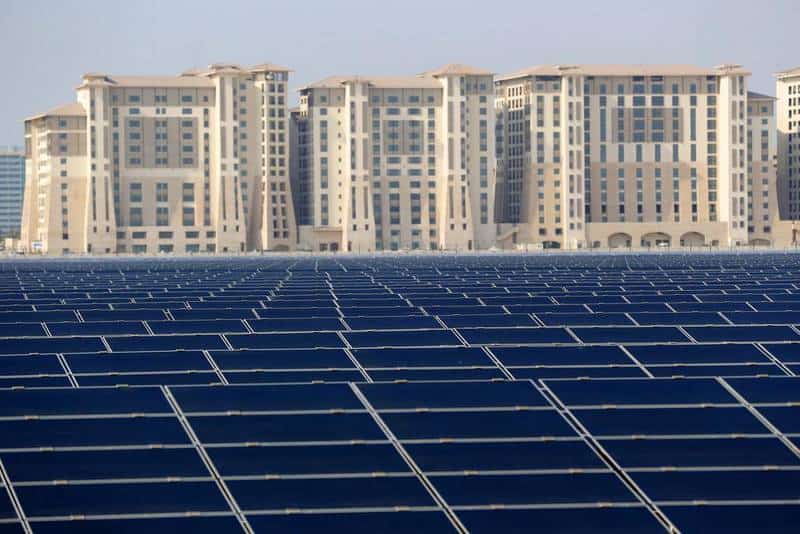Dubai government is making all efforts to increase the installed power capacity from 12,900 MW at present to 42,000MW to meet the Dubai Clean Energy Strategy 2050 target by that year.
In order to achieve this gigantic task, the Dubai Electricity and Water Authority’s (DEWA) has attracted US$10.89bn investments from the private sector and foreign banks.
These investments from the IPP (Independent Power Producers) model strengthened public-private partnerships. Through this model, DEWA received the lowest global solar energy prices for five consecutive times, making Dubai a global benchmark for solar energy prices.
Several businesses and homes installed rooftop solar photovoltaic units producing more than 134 MW across Dubai.
Dubai’s commitment to achieving 75 percent of the Emirate’s total power output from clean energy by 2050 is nothing new as the government launched Dubai Clean Energy Strategy in November 2015.
As part of the strategy, Dubai aims to produce three-fourths of its energy requirements from clean sources by 2050 and the government is keen to make the Emirate a global hub for clean energy and a green economy.
To achieve this energy mix, the UAE government has announced that it will invest US$163.32bn until 2050 to meet the growing energy demand and ensure sustainable growth of the economy.
Initiatives such as US$13.61bn Mohammed Bin Rashid Al Maktoum Solar Park to produce 5,000 MW by 2030 was announced in 2012, enact legislation to support clean energy policies, set up $US27,22bn Dubai Green Fund to offer easy loans for investors in the clean energy sector, develop human resources and create an eco-friendly energy mix comprising solar energy (25 percent), nuclear power (7 percent), clean coal (7 percent) and gas (61 percent) by 2030.
The mix will gradually increase the employment of clean energy sources to 75 percent by 2050, making Dubai the city with the lowest carbon footprint city in the world.
Sheikh Mohammed bin Rashid Al Maktoum, Vice-President and Prime Minister of the UAE and Ruler of Dubai, said this as he announced the launch of a new phase of the world’s largest solar site park on 17 August 2021.
In a tweet, he said that the first stage of the 900MW fifth phase of the Mohammed bin Rashid Al Maktoum Solar Park would be able to power 90,000 homes with a capacity of 300MW. Once completed, it will save over 6.5 million tonnes of carbon emissions annually.
Targets reached
By the end of 2021, Dubai’s clean energy capacity will increase to 13.3 percent of its total energy mix.
Interestingly, Dubai is the only city in the region to have launched such a promising strategy, with set goals and timelines that map the future of energy until 2050.
A study conducted by Nikkei Asian Review has said that the UAE’s interest in producing renewable energy has contributed to a reduction in its global cost.
The capacity of the solar power projects completed at the Mohammed bin Rashid Al Maktoum Solar Park is 713MW, and is due to exceed its target of 1,000 megawatts in 2020, with new phases currently under construction and design that will reach 2,863 megawatts by 2023.
DEWA’s MD and CEO Saeed Mohammed Al Tayer said that the government’s efforts contributed to a significant reduction in carbon emissions in Dubai. Net carbon dioxide (CO2) emissions have also achieved a considerable reduction of 19 percent by the end of 2018.
“This achievement is two years ahead of the target date set by the Carbon Abatement Strategy 2021 to reduce carbon emissions by 16 percent by 2021. The UAE in general and Dubai in particular have always been a pioneer in implementing solutions to enable it to have the lowest carbon footprint in the world by 2050,” he added.
Even, Masdar, which is owned by the Mubadala Investment Company, is a key contributor by more than doubling its portfolio in the last two years to 11 GW.
Other renewable sources of electricity such as wind and solar grew at their fastest rate in two decades in 2020 and are set to expand in the coming years at a much faster pace than prior to the pandemic.







